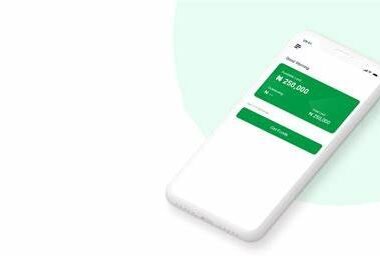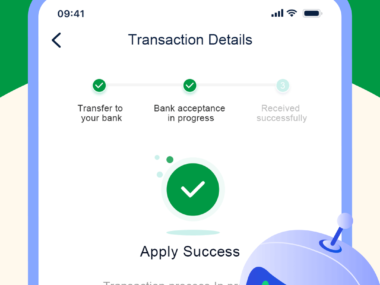In today’s fast-paced world, the need for quick loans has never been greater. Whether it’s to cover an unexpected medical expense, make an important purchase, or fund a business idea, the temptation to turn to online lenders can be overwhelming. But here’s the hard truth: while there are many legitimate lenders, there are also those who will prey on your desperation, offering loans that come with strings attached or, worse, are entirely fraudulent.
Have you ever found yourself in a tight spot, searching for money online and wondering, How do I know if this lender is legitimate? It’s easy to feel vulnerable when you need money fast, but it’s important to approach online borrowing with caution. Loan scams can lead to severe financial and emotional stress, so it’s essential to know how to protect yourself and avoid becoming a victim.
You can also read:
- How to Get Fast Funds with Instant Approval and Easy Terms!
- Are There Agricultural Loans for Farmers in Nigeria?
- How Can Rural Farmers Access Loans Without Bank Accounts?
- What Types of Loans Are Available to Nigerians, and Which One Suits My Needs Best?
- How Can I Manage My Loan Repayment If I Have a Fluctuating Income?
- How to Get Quick Loan Approval Without Stress in Nigeria
- How to Apply for Loans Without Being Rejected in Nigeria
- Proven Steps to Secure a Loan Without Collateral in Nigeria
- The Secrets to Getting Your Loan Approved on the First Attempt
- How to Borrow Money Safely Without Falling for Scams
- How to Access Loans Fast Without Long Bank Delays
- How to Apply for a Loan Without a Guarantor or BVN
- The Easiest Way to Get a Loan Without Collateral in Nigeria
- Best Loan Options in Nigeria for People with No Steady Income
- Smart Strategies to Get Your Loan Approved Faster
- How to Access Loans for Your Business Without High Interest Rates
- Top Mistakes to Avoid When Applying for a Loan in Nigeria
- How to Borrow Money Without Ruining Your Reputation
In this article, we’ll break down the key warning signs of loan scams, show you how to identify trustworthy lenders, and give you tips on how to plan for repayment responsibly. If you’re new to borrowing online or have faced challenges in the past, this guide will help you take control of your financial future and make informed decisions when seeking loans.
How to Identify Loan Scams and Avoid Fraudulent Lenders
Before you borrow money from any lender, it’s essential to be aware of the warning signs that indicate a scam. Fraudulent lenders can appear friendly, offering easy approval and low-interest rates, but they often have hidden agendas. Let’s look at some key red flags that should make you suspicious.
- Promises of Guaranteed Approval
One of the most common tactics of fraudulent lenders is guaranteeing approval regardless of your credit history. No legitimate lender can promise 100% approval without first reviewing your financial background. If a lender claims that your loan is guaranteed without any checks, walk away. - Unrealistically Low Interest Rates
Scammers often offer loans with exceptionally low-interest rates to lure you in. While low rates may seem appealing, they often come with hidden fees, high penalties for late payments, or other deceptive terms that make the loan much more expensive than it appears. Always compare interest rates and terms with other reputable lenders. - Upfront Fees
Legitimate lenders will never ask for money upfront before providing you with a loan. If a lender demands payment before disbursing the loan, it’s a scam. Be particularly cautious if they ask for payment via wire transfer or prepaid cards, as these are difficult to trace. - Lack of Contact Information
A legitimate lender will have a physical address, customer service number, and other clear contact information. If you’re unable to find these details or if the lender is evasive when asked about them, it’s a warning sign that something isn’t right. Always verify the lender’s credentials and research their history. - Requests for Personal Information
Fraudulent lenders often ask for personal information, such as your bank account number, before they’ve even approved your loan. This is a red flag. Only provide your personal information to lenders once you are sure they are legitimate and you have reviewed all the terms of the loan.
How to Avoid Loan Scams and Borrow Responsibly
While scams exist, there are many trustworthy online lenders out there. Here’s how to make sure you’re borrowing from a legitimate source:
- Research Lenders Thoroughly
Before committing to a loan, do your homework. Look up reviews of the lender, check their website for transparency, and see if they are registered with the appropriate financial authorities. In Nigeria, for example, the Central Bank of Nigeria (CBN) regulates lenders, and you can verify if a lender is licensed by checking their website. - Use Trusted Platforms
Platforms like Swifund have built a solid reputation for offering transparent loans with clear terms and competitive rates. By using established platforms, you can reduce the risk of falling victim to scams. These platforms are more likely to have customer support in case you need assistance during the loan process. - Read the Fine Print
Always read the full terms and conditions before accepting a loan. Ensure that the interest rate, repayment schedule, and any fees are clear. If something is unclear or seems too good to be true, don’t hesitate to ask questions or walk away. - Plan Your Repayment Before Borrowing
The key to responsible borrowing is planning ahead. Never take a loan without fully understanding how and when you will repay it. Create a budget that includes your loan repayment and stick to it. Failing to repay your loan on time can negatively affect your credit score and make it harder to borrow in the future.
Loan Options from Swifund
Swifund is a reputable online lending platform offering loans to individuals and businesses in need. Below is an overview of the loan types they offer, their interest rates, eligibility criteria, and repayment options:
| Loan Type | Interest Rate | Eligibility | Repayment Plan |
|---|---|---|---|
| Personal Loan | 12% per month | Nigerian citizen, age 18+, proof of income | Monthly payments over 3-12 months |
| Business Loan | 18% per month | Registered business, proof of business income | Repayment in 6-18 months |
| Emergency Loan | 10% per month | Proof of emergency required | Repayment in 3-6 months |
| Education Loan | 8% per month | Proof of enrollment in an accredited institution | Repayment in 6-12 months |
Edujects Advice:
Advice from the Edujects:
“On no account should you take beyond what you can repay. This is an opportunity, but don’t overuse it just because you have access to it freely. Don’t take more than your income expectations can handle. Use the money for its intended purpose. Learn from the Igbo business mindset: they would never borrow money for anything other than the purpose intended. Emergencies come and go, but what you do with the money during that time counts. Once the emergency is handled, quickly source a repayment plan. This will build credibility with the bank and ensure others can also receive help when they need it. Let’s create a trust-based, integrity-driven Nigeria, where companies can invest with confidence. Pay back on time to help Swiffund increase the number of loans they offer to those in need. Don’t wait until you’re being chased with phone calls. As you take the loan today, start planning for repayment today. Share this with anyone who needs to know and is in need of emergency help.”
Avoiding loan scams requires vigilance and responsibility. By researching lenders, understanding the terms of your loan, and planning for repayment, you can safeguard yourself from fraudulent schemes while taking advantage of the financial assistance legitimate lenders provide. Platforms like Swifund offer quick, transparent loans that can help you during emergencies, but always ensure you’re borrowing responsibly.






